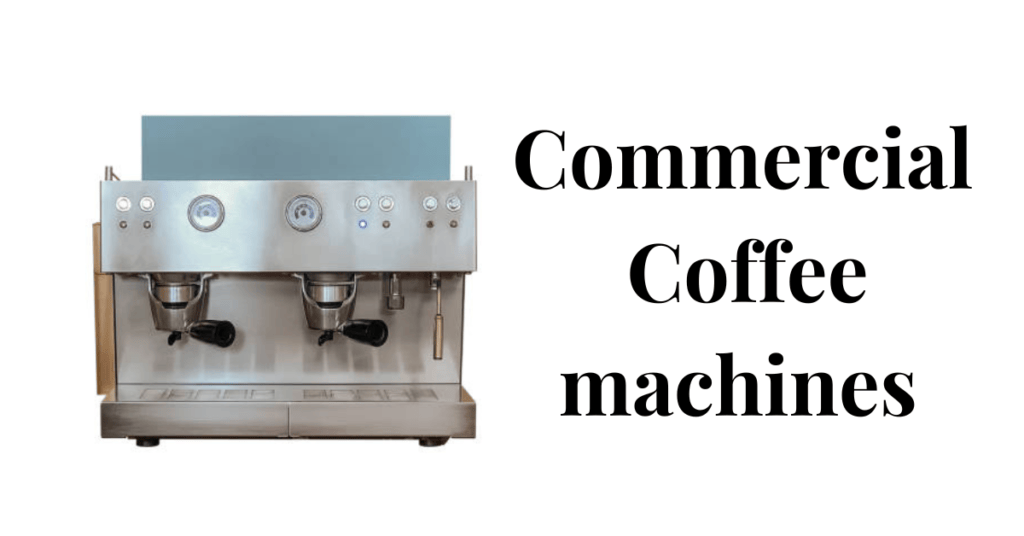Coffee machines are a staple in many households and workplaces, serving a much-needed dose of caffeine to kickstart the day or power through the afternoon slump. However, concerns about the potential health risks associated with coffee machines have surfaced. Can your coffee machine make you sick?
This article will explore various aspects of this question, delving into how coffee machines could pose health risks and offering practical tips on mitigating them.
As an affiliate site, we are associated with the amazon. We might receive a commission when you use links or recommendations on our website to make qualified purchases. The cost you pay for the goods or services is unaffected by this.
Table of Contents
The Anatomy of a Coffee Machine

To understand the potential health risks of coffee machines, it’s essential to grasp how they work. Coffee machines come in various types, including drip coffee makers, espresso machines, single-serve pod machines, and French presses. While each type functions differently, they all share a common purpose: to extract flavor and caffeine from coffee grounds using hot water.
Common Components of Coffee Machines
- Water Reservoir: The compartment where water is stored before brewing.
- Heating Element: The part of the machine that heats the water to the ideal temperature for brewing.
- Brew Basket and Filter: The area where coffee grounds are placed, and water passes through them to extract flavor.
- Carafe or Coffee Pot: The container that collects the brewed coffee.
- Drip Tray: Found in single-serve machines, this catches any spills or overflow.
Potential Health Risks Associated with Coffee Machines
If not maintained correctly, coffee machines can become a breeding ground for bacteria, mold, and yeast. Additionally, old coffee grounds and residue can lead to the growth of harmful microorganisms. Here’s a closer look at some of the health risks associated with coffee machines:
1. Mold and Bacteria Growth
Mold and bacteria thrive in warm, moist environments, making coffee machines an ideal breeding ground. The water reservoir, in particular, can harbor mold and bacteria if not cleaned regularly. Consuming coffee brewed from a machine with mold or bacteria can lead to various health issues, including respiratory problems, gastrointestinal discomfort, and allergic reactions.
2. Chemical Contamination
Some coffee machines, particularly older models, may contain materials that can leach harmful chemicals into your coffee. For example, coffee machines with plastic components might release BPA (Bisphenol A), a chemical linked to various health problems, including hormonal disruptions and increased cancer risk.
3. Residual Oils and Coffee Grounds
Over time, oils from coffee grounds can accumulate in the coffee machine’s brew basket, carafe, and other parts. These oils can become rancid and affect the taste of your coffee. Moreover, old coffee grounds left in the machine can attract pests and harbor bacteria, potentially leading to stomach issues if consumed.
4. Mineral Buildup and Scale
Hard water, which contains high levels of minerals like calcium and magnesium, can cause scale buildup in your coffee machine. This buildup can affect the machine’s performance and alter the taste of your coffee. In some cases, consuming coffee made with water that has a high mineral content can contribute to kidney stones and other health issues.
How to Keep Your Coffee Machine Clean and Safe
To minimize the health risks associated with coffee machines, it’s crucial to maintain them properly. Here are some practical steps to keep your coffee machine clean and safe:
1. Regular Cleaning and Descaling
Cleaning your coffee machine regularly is essential for preventing the growth of mold, bacteria, and yeast. Most manufacturers recommend cleaning the machine after every use and descaling it at least once a month, depending on how often you use it. Descaling involves removing mineral buildup using a descaling solution or a mixture of vinegar and water.
2. Use Filtered Water
Filtered water in your coffee machine can reduce mineral buildup and prevent scale formation. Filtered water also reduces the risk of chemical contamination and can enhance the flavor of your coffee.
3. Replace Coffee Machine Components Periodically
Over time, certain parts of your coffee machine, such as the filter basket and water reservoir, can wear out or become stained. Replacing these components periodically can help maintain the machine’s cleanliness and reduce the risk of contamination.
4. Store Your Coffee Machine Properly
Keep your coffee machine in a dry, clean place when not in use. Avoid storing it in damp or humid environments where mold and bacteria are more likely to thrive.
Choosing the Right Coffee Machine for Health and Safety
When selecting a coffee machine, it’s essential to consider health and safety aspects. Here are some factors to keep in mind:
1. Material Quality
Opt for coffee machines made from high-quality stainless steel or glass materials. These materials are less likely to leach harmful chemicals and are easier to clean than plastic.
2. Ease of Cleaning
Choose a coffee machine with removable and dishwasher-safe components. This feature makes it easier to clean all parts thoroughly, reducing the risk of bacteria and mold buildup.
3. Temperature Control
A coffee machine with good temperature control is essential for brewing coffee safely. The ideal brewing temperature is between 195°F and 205°F (90°C to 96°C). A machine that can maintain this temperature range ensures that harmful bacteria in the water are killed during brewing.
Read More Guides
- How often change Coffee Filter: Paper vs. Reusable: How often should you change your Coffee Filter?
- How is Filter Coffee different from Regular: Filter Coffee vs Regular Coffee
- Do Paper Coffee Filters remove Caffeine: Does your Coffee Filter affect your Buzz? Paper vs. Caffeine Content
- Do Coffee Filters have Plastic: The Shocking Secret about Coffee Filters
- Can you use Coffee Filters for Tea: Don’t Despair, Grab a Coffee Filter!
FAQs || For coffee machine make you sick
Can coffee machines cause mold?
Yes, coffee machines can harbor mold if not cleaned regularly, especially in the water reservoir and drip tray, where moisture accumulates.
How often should I clean my coffee machine?
You should clean your coffee machine after every use, perform a deep clean, and descale at least once a month.
Can drinking coffee from a dirty machine make you sick?
Yes, drinking coffee from a dirty machine can lead to gastrointestinal issues, allergic reactions, and respiratory problems due to mold, bacteria, or chemical residues.
Is it safe to use vinegar to clean my coffee machine?
Yes, using a mixture of vinegar and water is a safe and effective way to clean and descale your coffee machine. However, rinse the machine thoroughly to remove any vinegar taste.
Are all coffee machines BPA-free?
Not all coffee machines are BPA-free. It’s essential to check the manufacturer’s specifications to ensure the machine does not contain BPA or other harmful chemicals.
Conclusion
While coffee machines are generally safe to use, neglecting their maintenance can lead to potential health risks, including mold and bacteria growth, chemical contamination, and mineral buildup.
You can enjoy your daily cup of coffee without worrying by keeping your coffee machine clean, using filtered water, and choosing machines made from high-quality materials. Stay informed and take the necessary precautions to ensure that your coffee machine contributes to your health and well-being rather than posing a risk.







